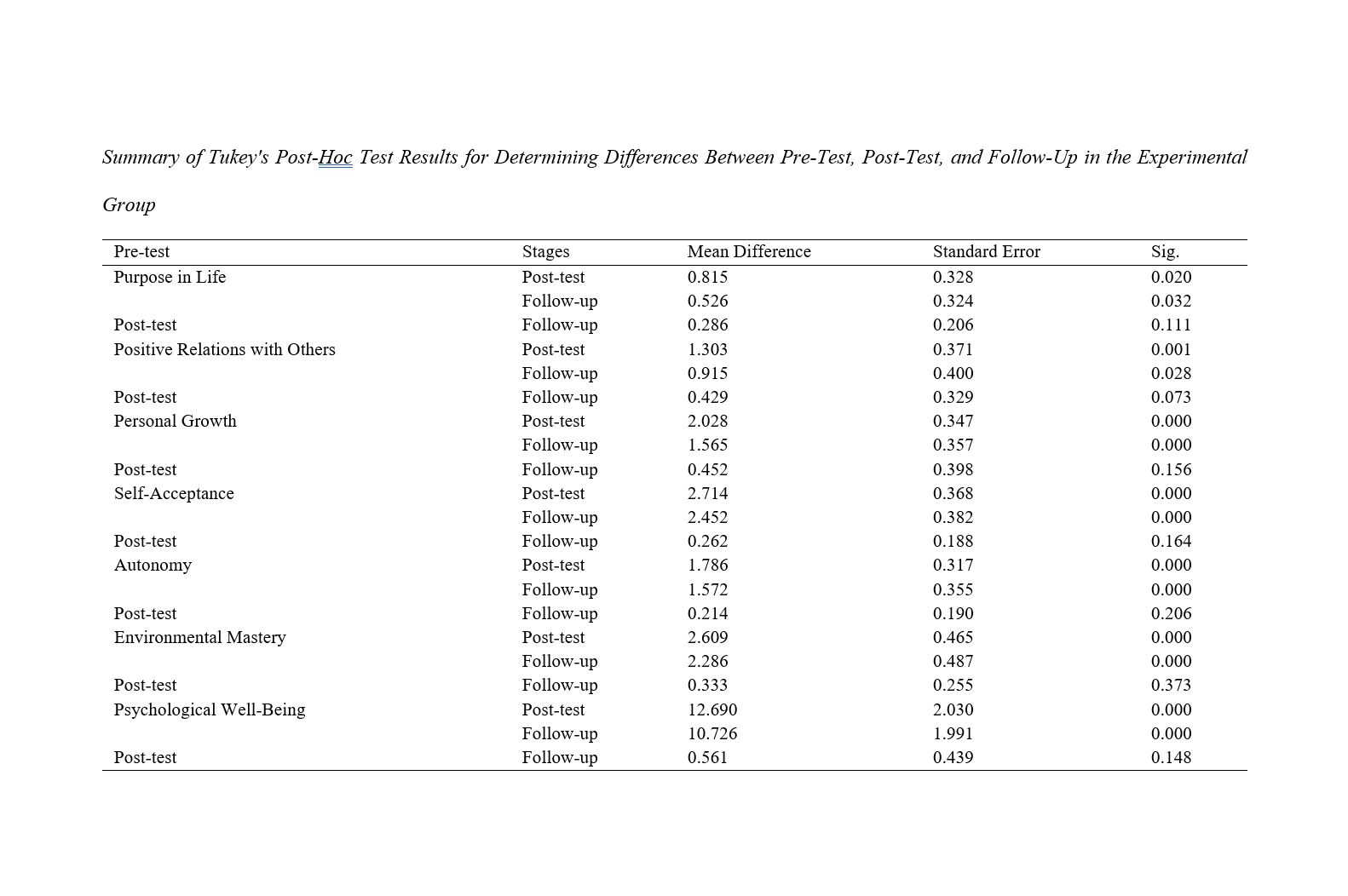Effectiveness of Mindfulness-Based Cognitive Therapy (MBCT) on the Psychological Well-Being of Infertile Women
Keywords:
Mindfulness-Based Cognitive Therapy, Psychological Well-Being, Infertility, WomenAbstract
Objective: The present study aimed to investigate the effectiveness of Mindfulness-Based Cognitive Therapy (MBCT) on the psychological well-being of infertile women.
Methods and Materials: This study employed a quasi-experimental design with a pre-test and post-test control group. The experimental group received MBCT, while the control group received no treatment. A follow-up test was conducted two months later. The control group, which was on a waiting list, received MBCT after the completion of the follow-up test. The statistical population included all infertile women aged 22 to 45 years who visited two private infertility centers in Sari in the first six months of 2023 and had a medical file. Thirty patients who were willing to cooperate were selected through non-random purposive sampling. They were then randomly assigned to the experimental group (MBCT) and the control group. Data were collected using the 84-item Ryff Scales of Psychological Well-Being (RSPWB) (Ryff, 1980). The experimental group underwent eight 90-minute weekly group MBCT sessions. Data analysis was conducted using statistical tests with SPSS software, version 22.
Findings: The results indicated that MBCT was effective in improving the psychological well-being of infertile women (P = 0.001). The results also showed that the effect of the therapy was lasting during the follow-up period.
Conclusion: The study concluded that mindfulness-based cognitive therapy (MBCT) significantly enhances psychological well-being in infertile women. The intervention not only improved overall well-being but also showed lasting effects during the follow-up period. These findings support the implementation of MBCT as a valuable therapeutic approach for addressing the psychological challenges associated with infertility.
Downloads

Downloads
Additional Files
Published
Submitted
Revised
Accepted
Issue
Section
License
Copyright (c) 2024 Zahra Zamanpour (Corresponding Author); Ailin Abbasian, Samaneh Gouranorimi, Parmida Mirzaian (Author)

This work is licensed under a Creative Commons Attribution-NonCommercial 4.0 International License.









